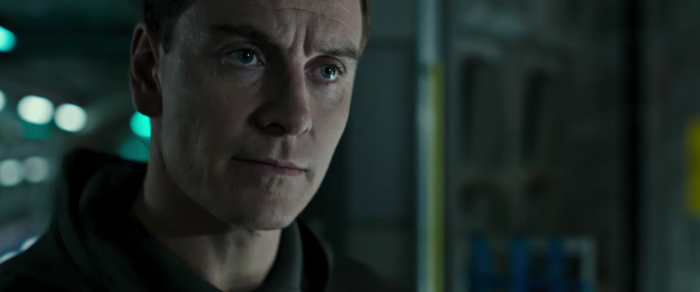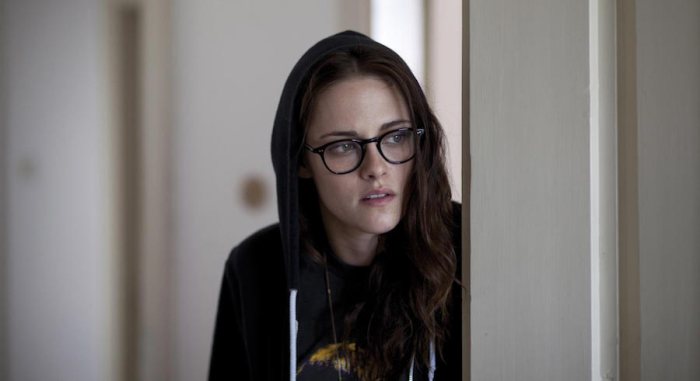“I must be getting old, because it’s fun,” Al Pacino says about doing press. The reasons are simple. “Nobody talks to me. I’ve got young kids, and they never talk to me at all. I never have a chance to talk to adults.” And Pacino can talk. He’s promoting “The Humbling,” based on the Philip Roth novel, in which he plays an aging, suicidal stage legend who winds up in a relationship with a much younger lesbian, played by Greta Gerwig. But the conversation roams freely, from therapy, hating the gym and even the great Shakespeare movies. (He’s fond of Roman Polanski’s bleak-o-rama “Macbeth.”) Here are some things the legendary Oscar-winner said to us: The importance (or not!) of rehearsal: “The Humbling” would have been a major production in the 1970s, but today it’s a tiny film with little time to muck about. Director Barry Levinson (who last directed Pacino in the Jack Kevorkian film “You Don’t Know Jack”) didn’t have any time for rehearsal. “What’s interesting about low budget films is you can’t rehearse,” he explains. “They shoot fast. That can shortchange the material a little bit. We would rehearse on weekends, whenever we could find the time.” But he had a good director. “Some directors you just can trust. You know they have that innate taste and an intelligence. You know they’re going to take what you said and filter it in a way that you feel good about. That’s how I feel about Barry.” Why the film’s mismatched leads match: A handful of decades separate Pacino and Gerwig, but he says, weirdly enough, it doesn’t matter. “She’s offbeat, and the character I play is offbeat. They somehow belong together, even though there’s an age disparity. You just don’t think about it.” Part of that, he says, is because her character doesn’t care. “Early on he says, ‘I’m too old for you.’ And she says she’s not. They’re just of the same world. Their eccentricities allow that to not be an issue.” On his co-star: Pacino says Gerwig would do things he’d never seen any other actor do. They were sitting in a car once waiting for a shot. “Nobody likes small talk,” he says. Gerwig especially doesn’t like it, and instead of chit-chatting with him she took out a book. “I really liked it because it was kind of comforting. We’re not here to talk to each other. Who needs to do it? It actually subtracts from you when you have to make small talk, because you have to put yourself out there. She was there with the book and it really relaxed me. It made think I wasn’t alone in my feelings about small talk.” The difficulties of doing theater as you get up in years: Pacino is 74, and he understands why his “Humbling” character finds stage work so taxing. “Doing a stage play eight times a week — that’s an endurance test, especially in the roles he’s playing,” he says. “You don’t walk through ‘King Lear.’ It can’t be done! It can drive you nuts. And you can’t do it if you’re forgetting the words. It’s all in the memory.” And it’s not just him. “I know a couple people right now who can’t go on stage anymore. And they’re great actors.” Theater story, the first: Pacino says losing his concentration has happened to him before. “I was doing Shakespeare many years ago, so it’s not like I was an older guy,” he remembers. “I was doing eight shows a week and I was doing this monologue that went on forever. And I had just done it in the afternoon. And I was doing it again. And I’m up there, doing the speech, and I’m thinking, ‘This is crazy, but I think I’m repeating everything I’m saying twice. And I look out at the audience and think, ‘Oh, they’re just being friendly. They know I’ve lost my mind.’ That’s me — that’s not this movie.” Theater story, the second: “I was doing ‘Glengarry,’ which I wasn’t as prepared for as I would have liked to have been,” Pacino recalls. “We were rehearsing with a live audience, which you don’t want to do. One time I was sitting there on the stage, thinking. All of a sudden this actor turns to me in the play and screams, ‘Shut the f— up!’ And I just looked out at the audience. And they roared. I didn’t know why he was yelling at me. And I realized I hadn’t given him his cue. I had to give him the cue so he could say, ‘Shut the f— up.’ My mind was wandering. I almost felt like we should have kept that in there. We got a great laugh!” On Shakespeare: Pacino is no small fan of the Bard; he even directed a documentary, 1996’s “Looking for Richard,” about actors wrestling with his texts. “When you do Shakespeare as an actor, your knowledge of him is different from someone who’s going to see it or who’s reading it” he explains. “You have to absorb it. It takes months to learn Shakespeare and what he wrote. The only way you would understand him is by learning the play, by being in the play. You can see the play, and you’ll get some portion of it. But to get the nuance and the subtlety and the poetry, you have to read it out loud.” On the Joe Paterno movie that may (or may not) happen: Pacino has been involved with an HBO film about the Jerry Sandusky scandal, to be helmed by his “Scarface” and “Carlitto’s Way” director, Brian De Palma and with him as Paterno. But right now it’s in a form of turnaround, he says because the script needs more work. “The movie has to focus on what it’s going to say, what it’s about,” he says. It might happen, but not anytime very soon. In the meantime he’s a big fan of “Happy Valley,” Amir Bar-Lev’s recent documentary on the subject. “That’s a tough act to follow,” he says. “It just unfolds for you. It doesn’t have many answers. It leaves doors open and you just don’t know about certain things. You certainly don’t what Paterno’s part was. What did he say? What did he avoid? That’s some momentous stuff. That’s the stuff tragedies are made of. That’s ‘King Lear’ stuff.”
Interview: Al Pacino talks ‘The Humbling’ and forgetting lines
Follow Matt Prigge on Twitter @mattprigge


















